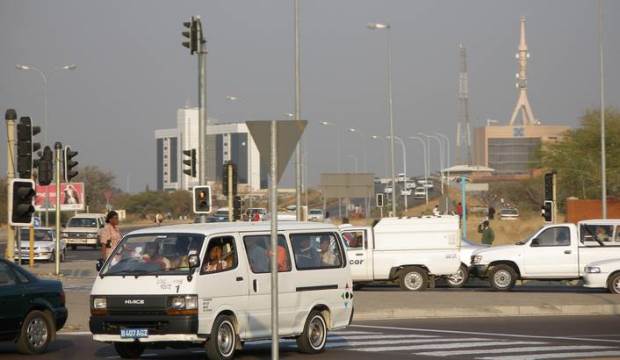
On Tuesday afternoon the Home Affairs department released a statement in which it confirmed that a man wanted for murder in Botswana had been given to authorities from that country. It went on to say that one Edwin Samotse was passed over by two officials who have now been suspended.
The department explained that this deportation was in violation of a Constitutional Court order that refuses to allow anyone to be extradited from this country, unless the place they’re going to provides a full assurance they will not face the death penalty there. This goes back several years, and essentially stems from the court’s first-ever judgment (apart from the certification case) that ruled capital punishment here illegal.
On Wednesday more details emerged, namely that the two officials were “of a relatively senior level” and knew the Constitutional Court’s stance on this. There is also an investigation underway, and a paper trail showing that they knew he should not be deported. This is likely to help the department somewhat, as Lawyers for Human Rights took up the case last month, and tried to stop the deportation in the first place. In fact, the North Gauteng High Court had specifically ruled on this case, and, following the Constitutional Court precedent, said Samotse should remain in South Africa.
The obvious problem with a case like this is that the series of events cannot be reversed. Botswana has its man, they want him for murder, and there is absolutely no reason for them to give him back to us. Like the death penalty itself, what these two officials have done cannot be undone. They may well have signed the man’s death warrant with their actions.
Lawyers for Human Rights say at this point that they cannot find Samotse, and don’t know where he is. Considering Botswana does have its own constitution, he is of course protected by their laws. But that doesn’t help if no one knows where he is, or what is happening to him, or, more crucially, why.
All of this raises serious questions about the motives of these two officials. Surely, if the department’s claim about the paper trail is correct, then they are going to lose their jobs. Quite frankly, they would be lucky to receive just that sanction, rather than being criminally charged. A man could die because of their actions, which they performed knowingly.
The real problem that the Home Affairs department has here is that their officials have knowingly disobeyed the law, and judges before. In one famous case, an official at Cape Town International Airport refused to take a call knowing that Judge Dennis Davis was on the other end, about to order him to stop the illegal deportation of an Uzbek woman. That was serious enough, and it led to Davis writing a ruling that was then delivered directly to the department’s director general.
However, that pales into comparison with the Khalid Rashid case. In 2006 Rashid was, as far as we know, taken by armed men who travelled by helicopter from where he was living in Escort. He then disappeared. Through the heroic efforts of lawyer Zehir Omar, it finally emerged that he must, surely, have been a victim of what the Americans like to call “extraordinary rendition”. In other words, he was kidnapped, from our soil, and taken to a place where he could be questioned. Or interrogated. Or tortured. While the details were never firmly established, it is surely true that none of this could have happened without the connivance of our government.
In these cases, it is the lack of information that is so disturbing. The whole purpose of our Constitution is to prevent South Africa becoming a lawless nation. It’s the fact that we have laws that gives us freedom. Without those laws being followed, there is no freedom. If any of the people involved in these cases had been South African, the chances are that they would have been treated differently. But because of the secrecy, we don’t know that for sure.
That the Home Affairs department has been in the news recently for its efforts in discouraging tourists and business people to come here is not a surprise. It is, by its very nature, a department that deals with tricky issues. Monitoring and regulating the traffic of people coming and going into the country is always going to be difficult. And it’s going to raise issues that intelligent people (and lawyers) can argue about for days and weeks. However, it can do a lot to keep its reputation strong by making sure that people know what is actually going on, and feel that they are a part of the whole process.
In this case, to make sure that it does not appear that there was some other agenda at play with Samotse, the department needs to fulfill its commitment to investigate exactly what happened. But it may have to go slightly further, to make sure that we know what the actual motive was. Without knowing the motive for this decision by these two officials, there are always going to be questions. And that will make the department less likely to be believed in the future, the next time a parent is separated from his or her children because of a missing full stop in an unabridged birth certificate.
So far the department has given us the necessary information. It must ensure that it continues to do so. DM
Article by: Stephen Grootes
Article Source: The Daily Maverick
